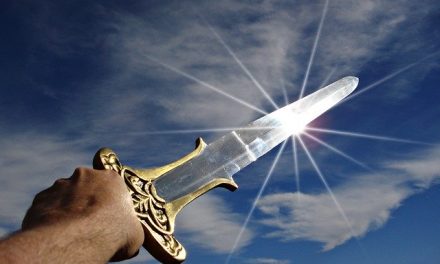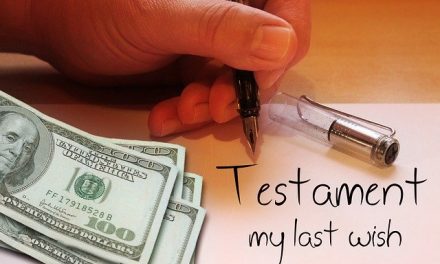You probably don’t remember reading this, but here is what it says. “He is a jealous God. He will not remove your transgressions and sins” (Josh 24:19).
What does Joshua 24:19 mean?! Is this the same God of the Bible who “forgives all your sins and heals all your diseases” (Ps 103:3).
Context Matters
Joshua is about to pass away. He has charged the leaders of the Israelites to be strong and continue to obey all that is written in the book of the law of Moses (Jos 23:4). He has lived his life with such great faith but now he wants to charge the Israelite community to continue to follow the Lord.
So he gathers “all the tribes of Israel at Schechem” to renew the covenant. They had already made a covenant, but by renewing it with them, it helped them to remember it and remember it well.
The covenant renewal has a familiar structure. It is seen also in Deut 29-30 when Moses renews the covenant. But here are the basic elements of covenant renewal as we also see in Joshua.
1) Recalling History – Josh 24:2-13; (cf Deut 29:1-8)
In this case God called Abraham whose family worshiped other gods, and called them to the land of Canaan. Then he made a covenant with Abraham for he and all his descendants. Esau was given the hill country, and Jacob went down to Egypt where they multiplied greatly. But the Israelites were oppressed in Egypt and the Lord rescued them, destroying the Egyptians in the sea.
Later he brought them to the land of Canaan, defeating kings and nations before them so that they could settle in the land. The land was good and was filled with fruit and farmland and houses that they did not build.
2) The Charge of the Covenant – Josh 24:14 (cf Deut 29:9)
The covenant was this: Serve Yahweh and worship him alone.
3) The Free and Voluntary Nature of the Covenant – Josh 24:15 (cf. Deut 30:15-19)
It was important that the covenant was entered into freely. And this is made clear in Jos 24:15.
“But if it doesn’t please you to worship Yahweh, choose for yourselves today the one you will worship; the gods your fathers worshiped beyond the Euphrates River or the gods of the Amorites in whose land you are living. As for me and my family, we will worship Yahweh.”
It was important when people made a covenant that it wasn’t a treaty or a contract, but a voluntary measure to enter into a union. That this was freely chosen was made clear.
4) Terms if the Covenant is not Honored – Josh 24:19-20 (cf Deut 29:16-29)
This is the next phase of covenants. Lay out the “warnings” if the covenant is violated. In this case, God expected devotion. Just like when a husband and wife into a marriage covenant, it means saying “yes” and “I do” to each other and “I don’t” and “no” to all others.
In this case the terms of the covenant were that God would not remove their transgressions and sins, but that he would have to take care of business. He would bring disaster upon them for committing adultery.
This term in the covenant was to make sure the people understood the sobriety of making a covenant. It wasn’t to be treated lightly as an agreement, a treaty or a contract. It was a covenant. It was forever union.
5) The Witnesses to the Covenant Making – Jos 24:22; (cf Deut 30:19)
The next step was to agree to the covenant and have it witnessed. In this case the Israelites adopted the covenant declaring they would serve Yahweh alone. “We will worship the LORD” (Jos 24:21).
“Joshua then told the people, “You are witnesses against yourselves that you yourselves have chosen to worship Yahweh.”
“We are witness,” they said.” (Jos 24:22-23).
6) The Entry into the Covenant – Jos 24:23 (cf Deut 30:19-20)
To fully enter the covenant, they must take steps of change. In this case they were to rid themselves of all other “gods” per the terms.
“Then get rid of the foreign gods that are among you and offer you r hearts to the LORD, the God of Israel” (Jos 24:23).
7) A Second Affirmation of the Covenant – Jos 24:24
Just to make sure that there was no doubt, the covenant again had spoken agreement. This is unique to Joshua as Moses didn’t do this, but Joshua wanted to make extra certain that they undrestood and agreed to the covenant.
“So the people said to Joshua, “We will worship the LORD our God and obey Him” (Josh 24:24).
And at this point the covenant was fully renewed. It’s important to note that this isn’t an original covenant. Original covenants had to have blood as part of the covenant (Abraham/God – Gen 15, Jesus and the New Covenant in his blood (Lk 22:20), etc…).
If you see any covenant in Scripture, blood was what sealed the covenant. It’s why when a man and woman come together the very first time on the marriage bed, that there is blood shed. It is the covenant blood.
This though is the renewal of a covenant. And as a renewal it did not have the key element of blood. But it does have the elements of a covenant–that it’s voluntary, the terms are laid out, there is agreement, witnesses and affirmation of the agreement.
So What about that Strange Verse in Joshua 24:19?
In the stage of the covenant where what would happen if the people of Israel did not observe the covenant, it says “He will not remove your transgressions and sins” (Jos 24:19). When he is saying this, it’s important to understand it’s the role in the covenant agreement. It’s not meant to be a theological treatise. It’s meant to bring the sobriety to the covenant before they enter in. This kind of language is the “forsaking of all others” that we see in the marriage vows (at least in the US).
A covenant is something so sacred that it’s violation is a desecration. Just ask any spouse who has had the marriage covenant violated with their spouse in bed with another. It’s something terrible.
In a way this text is hyperbolic language and yet it has reality too it. ‘If you get in bed with other lovers, I will bring disaster because you freely entered into a covenant with me.’ It’s not a threat. It’s a sobriety check before one commits and says ‘yes.’
Nor is it a theological teaching. One that says that God will not forgive sin and rebellion. The very fact that He is even making the covenant is proof of that as they have already had a long string of rebellious events while in the covenant (remember this is a renewal). But is God making it clear. He will not be passive nor will he tolerate other lovers.
Israel says ‘Yes’
Israel says yes to the covenant renewal. And after Joshua passed away and the elders took his place, they actually kept that covenant (Jos 24:31).
Not only that but even Joshua’s bones were buried in the land of Israel after 400+ years. This was to yet again show that God fulfilled his promises (Gen 50:24; Ex 13:19; Jos 24:32). Promises so extraordinary that they seemed preposterous. And yet God did.






